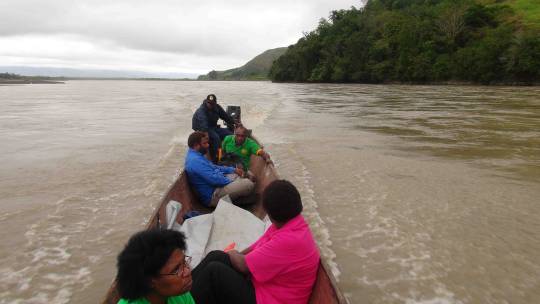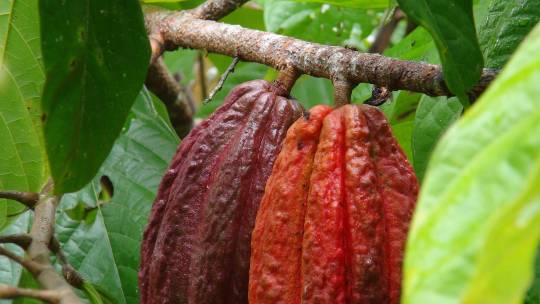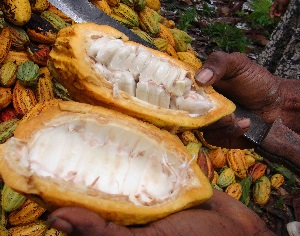by Scott Waide – EM TV, Lae
Morobe province is fast becoming a leader in community driven cooperative movements.
The Lower Watut Cocoa Cooperative is on a path to getting a cocoa export license which will enable its 16 cluster groups to fetch a higher price for their cocoa.
Already, Watut cocoa is being used in organic chocolates overseas in a global health conscious niche market.
The Watut is a river highway not as prominent as the Sepik or the Fly, but is still home to thousands of people who depend on it for food, water and transportation.

About 40 minutes from a river turn off from the Markham into the Watut, we arrive at Chiatz village, the first of 16 cluster groups in the Lower Watut Cocoa Cooperative.
Esrik Tobias and his people have come to know the value of cocoa. For them, cocoa is a reliable income source that gives them the means to buy building material and pay for fuel and transportation.
“We used to sell betel nut. But then disease killed off our only means of earning an income and we began to plant cocoa.”
Cocoa is slowly transforming lives, giving people in this region financial muscle they never had before.

Another three hours upriver, we arrive at Tsilitsili village, the heart of the Lower Watut Cocoa cooperative. Each cluster group now owns a cocoa fermentary and each has the ability to make at least K30,000 every quarter.
From small village economies previously heavily dependent on betel nut sales, Chiatz and Tsilitsili are now a players in Global niche market that demands high quality organic cocoa for chocolate.
“We are looking at building people driven cooperatives,” says Michael Toliman, who now works an extension officer with the cooperatives.
He is key player in the cooperative movement in the Lower Watut Region. Michael Toliman, was featured in a previous EM TV News story about the highly successful Neknasi Coffee Cooperative in the Boana area of Morobe where Michael worked unpaid for three years.
Using the Neknasi experience, Michael and a small team are drawing cocoa, coffee and rice cooperatives together to share management and technical expertise.
“When we sent samples from here to a cocoa expo in Switzerland, the feedback was that the cocoa produced high quality chocolate and cocoa liqueur.”
While Lower Watut has become internationally recognised, challenges remains. After 40 years, there are no roads linking Tsilitsili, Chiatz and the 16 cluster communities to Lae City – the provincial capital.
The cooperative movement is spreading all over Morobe province. Each has its own story to tell.
The Neknasi in Boana built their own roads and bought vehicles to transport coffee.
The Yus Cooperative in Kabwum, despite its isolation and lack of roads, continues to hit international markets with its premium coffee brand.
Rice cooperatives in Markham are, in their own way, showing communities that Papua New Guinea, doesn’t really need to import all its rice from Australia.
https://youtube.com/watch?v=fUs7vnOIUHQ%3Ffeature%3Doembed%26wmode%3Dopaque%26showinfo%3D0%26showsearch%3D0%26rel%3D0


